Publications
All publications
Read more about our learning from Farm Africa's programmes in our publications.
Filter by:
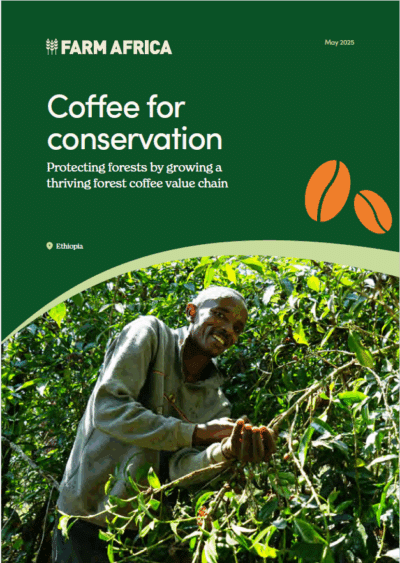
Coffee for conservation: Protecting forests by growing a thriving forest coffee value chain
More info
Country
Ethiopia
Key focus areas
Connect farmers to markets
Increase incomes
Protect ecosystems
Coffee for conservation: Protecting forests by growing a thriving forest coffee value chain
This learning paper describes how a three-year Farm Africa project in the ecologically vital Ilu Ababor Zone of Ethiopia successfully protected natural forests while improving the livelihoods of 4,000 people through sustainable coffee production and alternative income sources.
Download (1.04mb)

Country
Ethiopia
Key focus areas
Connect farmers to markets
Increase incomes
Protect ecosystems
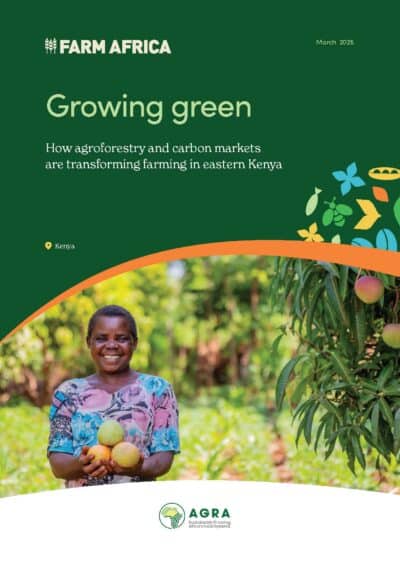
Growing green – how agroforestry and carbon markets are transforming farming in eastern Kenya
More info
Country
Kenya
Key focus areas
Act on climate change
Increase incomes
Protect ecosystems
Growing green – how agroforestry and carbon markets are transforming farming in eastern Kenya
This report charts the progress of more than 21,500 farmers in Embu and Tharaka Nithi counties in eastern Kenya who have planted trees and adopted climate-smart farming techniques.
Download (1.95mb)

Country
Kenya
Key focus areas
Act on climate change
Increase incomes
Protect ecosystems
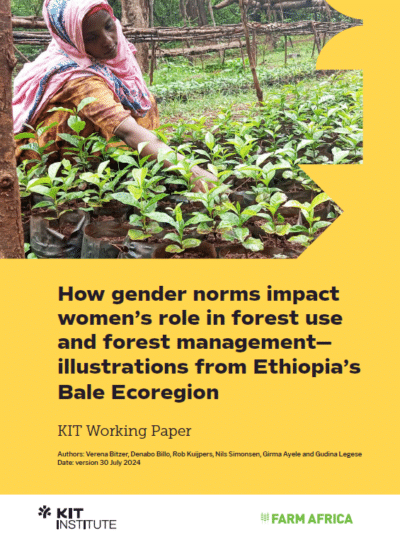
How gender norms impact women’s role in forest use and forest management – illustrations from Ethiopia’s Bale Ecoregion
More info
Country
Ethiopia
Key focus areas
Empower women
Protect ecosystems
How gender norms impact women’s role in forest use and forest management – illustrations from Ethiopia’s Bale Ecoregion
Involving rural communities is important for effective forest conservation, however, women are often excluded from playing an active role in forest-related decision-making, despite the high dependency of rural women on forest products such as fuelwood and non-timber forest products and clear evidence that women’s participation in forest management groups can result in better resource governance and conservation outcomes. This paper unravels the gender relations in rural forest dependent communities in Ethiopia by taking a closer look at the country’s Bale Ecoregion, located in the Oromia regional state.
Download (4.58mb)

Country
Ethiopia
Key focus areas
Empower women
Protect ecosystems
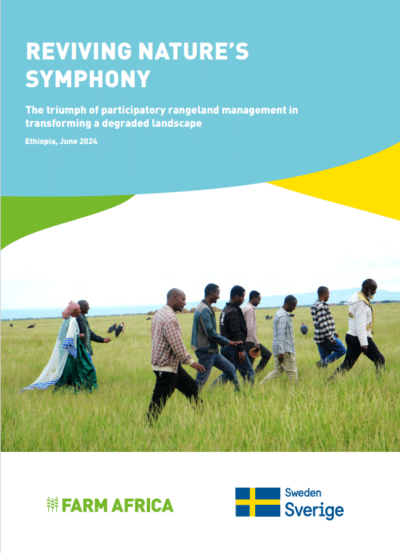
Reviving nature’s symphony: the triumph of participatory rangeland management in transforming a degraded landscape
More info
Country
Ethiopia
Key focus areas
Act on climate change
Increase food security and nutrition
Protect ecosystems
Reviving nature’s symphony: the triumph of participatory rangeland management in transforming a degraded landscape
This case story describes the success achieved by a community rangeland management cooperative in restoring degraded grasslands at Ethiopia’s Abijatta-Shalla National Park in the Great Rift Valley. The rapid transformation showcases what can be achieved by combining innovative techniques, collaborative effort and community engagement.
Download (1.95mb)

Country
Ethiopia
Key focus areas
Act on climate change
Increase food security and nutrition
Protect ecosystems
Country
Ethiopia
Key focus areas
Boost productivity
Increase incomes
Protect ecosystems
A greener future on a grand scale: a summary of the Bale Eco-region Phase II project
Ethiopia’s Bale Eco-region is an ecologically critical area and also home to many people who depend on its resources for their livelihood. Since 2014, Farm Africa has been leading a consortium to improve livelihoods in the region while ensuring the ecosystem is protected. The first phase of the project developed a management strategy for the region. Phase II (2019-2024), funded by the European Union, has scaled out the strategy to reach over 1.6 million people. This report summarises those Phase II activities and outcomes.
Download (3.96mb)
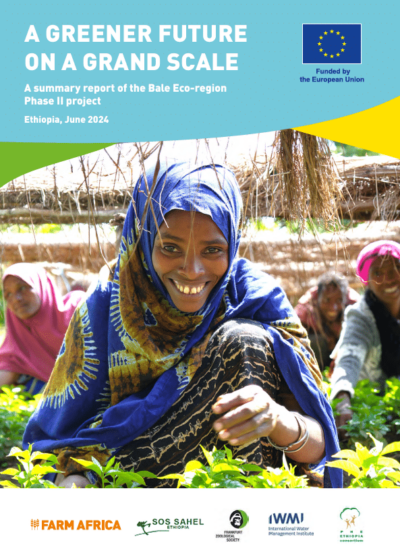
Country
Ethiopia
Key focus areas
Boost productivity
Increase incomes
Protect ecosystems
Country
Ethiopia
Key focus areas
Increase food security and nutrition
Increase incomes
Protect ecosystems
Nature-based Solutions factsheet
A four-page summary of Farm Africa’s Nature-based Solutions for Sustainable and Inclusive Development programme in Ethiopia, funded by Sida. The programme, which runs from 2023 to 2026, aims to sustainably manage forests, conserve biodiversity, build communities’ resilience to climate change and develop sustainable livelihoods through holistic nature-based solutions across six river basins in Ethiopia, clustered into three eco-regions.
Download (4.64mb)
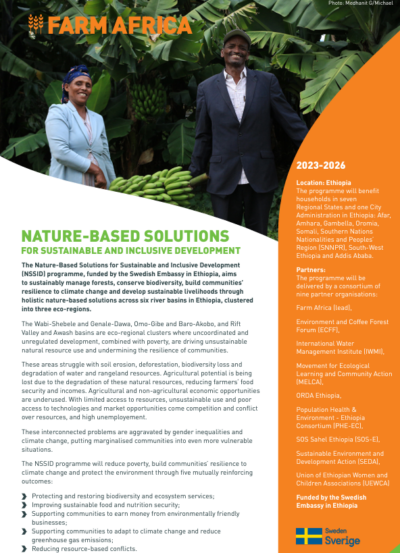
Country
Ethiopia
Key focus areas
Increase food security and nutrition
Increase incomes
Protect ecosystems
Country
Ethiopia
Key focus areas
Boost youth employment
Increase incomes
Protect ecosystems
Eco-tourism opportunity in Ilu Ababor Ethiopia
Although Ilu Ababor Zone in Ethiopia is presently unknown to tourists, a recent scoping study carried out by Farm Africa, Mattu University and Oromia Tourism Commission has found strong potential for sustainable eco-tourism development. This study summary outlines key findings and describes, in detail, 7 priority sites for eco-tourism development consideration.
Download (1.05mb)
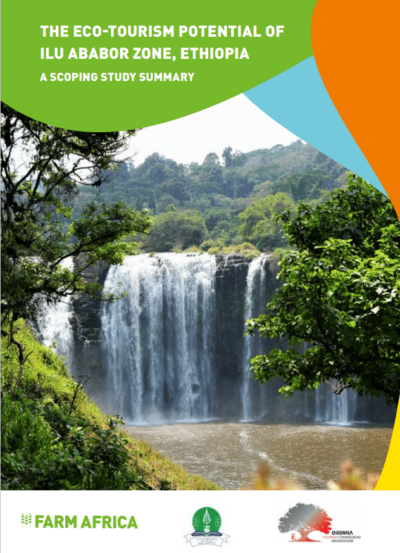
Country
Ethiopia
Key focus areas
Boost youth employment
Increase incomes
Protect ecosystems
Country
Ethiopia
Key focus areas
Protect ecosystems
Landscape management in the Central Rift Valley
This booklet features 12 stories from the Central Rift Valley Landscape Management project, which ran from 2019 to 2022. Funded by Sida, the project was delivered by a consortium of organisations including Farm Africa (lead), SOS Sahel Ethiopia, International Water Management Institute (IWMI), Population, Health, and Environment Ethiopia Consortium (PHE EC), and Sustainable Environment and Development Action (SEDA).
Download (4.68mb)
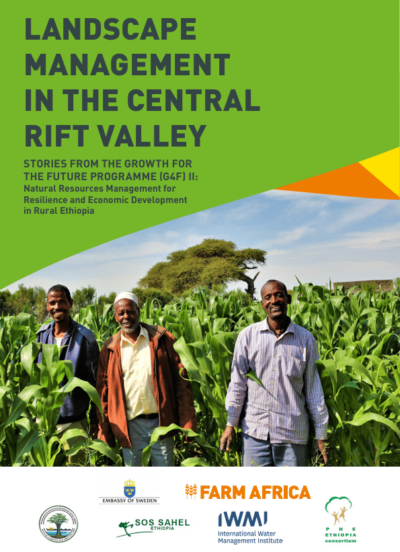
Country
Ethiopia
Key focus areas
Protect ecosystems
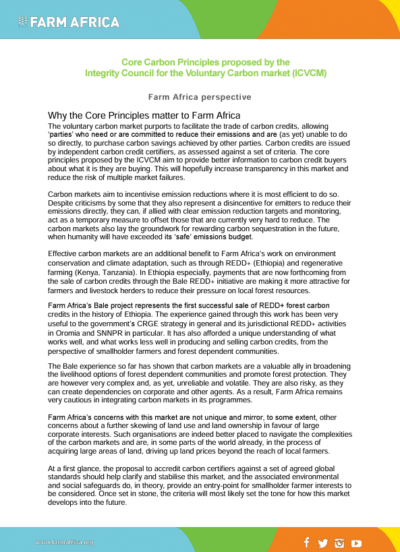
Farm Africa response to the Core Carbon Principles proposed by the Integrity Council for the Voluntary Carbon Market (ICVCM)
More info
Country
DR Congo
Key focus areas
Act on climate change
Increase incomes
Protect ecosystems
Farm Africa response to the Core Carbon Principles proposed by the Integrity Council for the Voluntary Carbon Market (ICVCM)
This PDF is the response Farm Africa submitted in September 2022 to a public consultation on the draft Core Carbon Principles (CCPs) and Assessment Framework (AF) being developed by the Integrity Council for the Voluntary Carbon Market (ICVCM)’s Expert Panel. The CCPs and AF will set new threshold standards for high-quality carbon credits, provide guidance on how to apply the CCPs, and define which carbon-crediting programmes and methodology types are CCP-eligible. The Core Carbon Principles and Assessment Framework will be issued in Q4 2022, following the public consultation, which launched in July 2022.
Download (606.24kb)

Country
DR Congo
Key focus areas
Act on climate change
Increase incomes
Protect ecosystems
Country
Ethiopia
Key focus areas
Boost youth employment
Empower women
Protect ecosystems
Support businesses
Ethiopia Strategy 2021-2025
A five year strategic plan for Farm Africa’s Ethiopia team which contribute to the overall objectives found in Farm Africa’s 2021-2015 strategy.
Download (1.73mb)
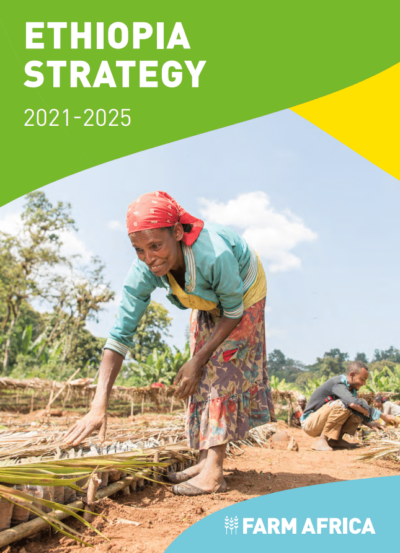
Country
Ethiopia
Key focus areas
Boost youth employment
Empower women
Protect ecosystems
Support businesses
Country
Ethiopia
Key focus areas
Increase incomes
Protect ecosystems
Making forests sustainable
Between 2012 and 2021, Farm Africa worked with the NGO SOS Sahel Ethiopia, with funding from the Royal Norwegian Embassy in Ethiopia, to deliver a REDD+ project that lowers greenhouse gas emissions by reducing deforestation in the Bale Eco-region, while also boosting the livelihoods of local communities living in poverty. This document presents key lessons generated by the Phase II of the project, which ran from 2016 to 2021.
Download (4.16mb)
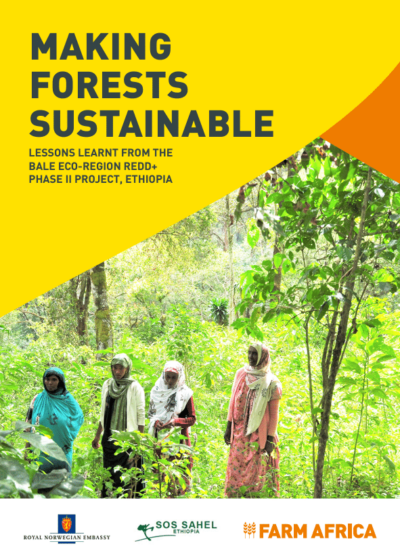
Country
Ethiopia
Key focus areas
Increase incomes
Protect ecosystems
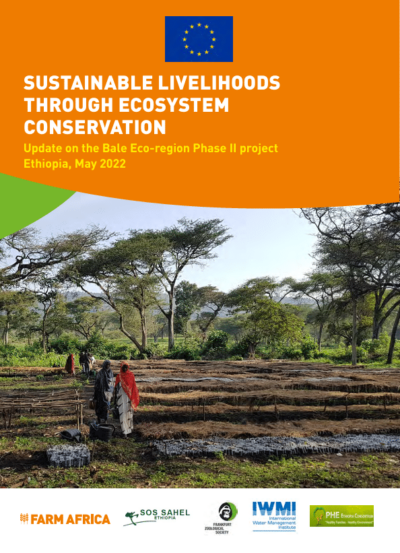
Sustainable livelihoods through ecosystem conservation: Update on the Bale Eco-region Phase II project
More info
Country
Ethiopia
Key focus areas
Boost productivity
Increase incomes
Protect ecosystems
Sustainable livelihoods through ecosystem conservation: Update on the Bale Eco-region Phase II project
The BER phase II project aims to improve the livelihoods of vulnerable people in south-eastern Ethiopia and to protect the environment through an integrated ecoregional development approach. This report gives an update on the achievements of the project and features testimonies from those directly involved.
Download (4.32mb)

Country
Ethiopia
Key focus areas
Boost productivity
Increase incomes
Protect ecosystems
Country
Ethiopia
Key focus areas
Act on climate change
Increase incomes
Protect ecosystems
Livelihoods for Refugees and Host Communities
The project brought refugees and Ethiopian hosts together to address common challenges: environmental degradation, climate change and poverty. The Ethiopian Government provided host and refugee communities with access to previously unused land.
Download (6.07mb)
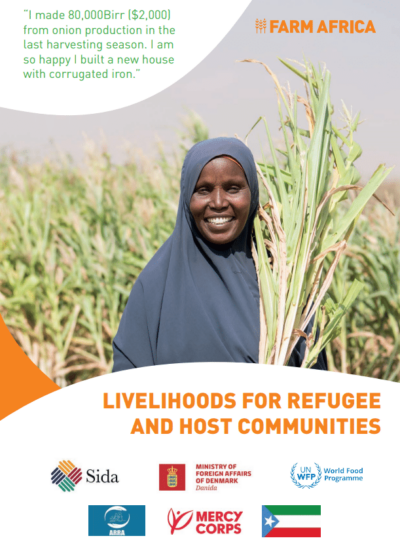
Country
Ethiopia
Key focus areas
Act on climate change
Increase incomes
Protect ecosystems
Country
Ethiopia
Key focus areas
Act on climate change
Increase incomes
Protect ecosystems
Forests for sustainable development factsheet
Factsheet on Forests for sustainable development programme, which aims to contribute to the sustainable conservation of natural forests, biodiversity and ecosystem services in the Bale Eco-region and associated landscapes in Guji and Borena zones in Oromia, Ethiopia through interventions that reduce deforestation and biodiversity loss, increase household incomes and resilience of the local community, and improve governance for integrated landscape management.
Download (673.28kb)

Country
Ethiopia
Key focus areas
Act on climate change
Increase incomes
Protect ecosystems
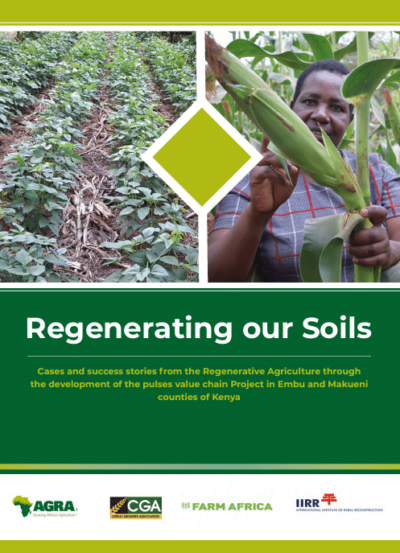
Regenerating our Soils – Cases and Success Stories from the Regenerative Agriculture project in Kenya
More info
Country
Kenya
Key focus areas
Boost productivity
Increase food security and nutrition
Protect ecosystems
Regenerating our Soils – Cases and Success Stories from the Regenerative Agriculture project in Kenya
This booklet tells the stories of farmers involved in AGRA’s “Regenerative agriculture through the development of the pulses value chain” pilot project, which ran from July 2020 to October 2021, AGRA, with funding from IKEA Foundation, and in partnership with Farm Africa and Cereal Growers Association (CGA) in Embu and Makueni Counties of Kenya.
Download (10.03mb)

Country
Kenya
Key focus areas
Boost productivity
Increase food security and nutrition
Protect ecosystems
Country
Ethiopia
Key focus areas
Act on climate change
Increase food security and nutrition
Protect ecosystems
Nature-based Solutions in Action: Lessons from the Frontline
Farm Africa’s case study from Ethiopia’s Bale Eco-region is featured in this report on page 32.
Download (7.69mb)
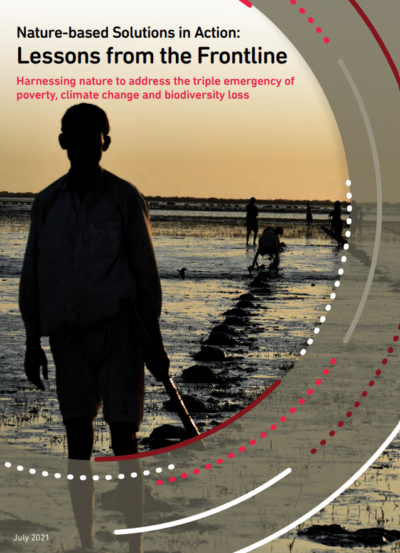
Country
Ethiopia
Key focus areas
Act on climate change
Increase food security and nutrition
Protect ecosystems
Country
DR Congo
Key focus areas
Act on climate change
Boost productivity
Boost youth employment
Connect farmers to markets
Empower women
Increase access to finance
Increase food security and nutrition
Increase incomes
Protect ecosystems
Strengthen food systems
Support businesses
Farm Africa strategic plan 2021-2025
Farm Africa is a leading NGO specialising in promoting sustainable agricultural practices, strengthening markets and protecting the environment in rural Africa. Our strategic plan for the years 2021-2025 outlines our ambitious plan to grow and unlock the potential of agriculture to transform rural Africa.
Download (1.47mb)
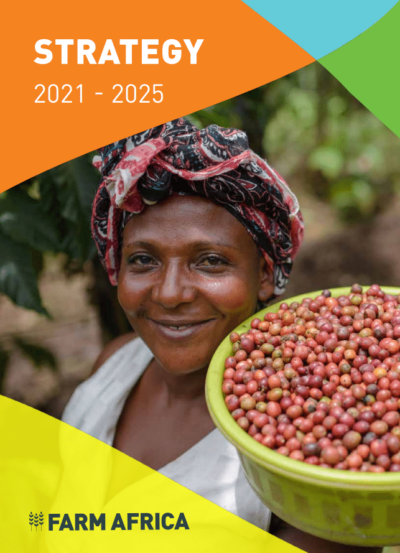
Country
DR Congo
Key focus areas
Act on climate change
Boost productivity
Boost youth employment
Connect farmers to markets
Empower women
Increase access to finance
Increase food security and nutrition
Increase incomes
Protect ecosystems
Strengthen food systems
Support businesses
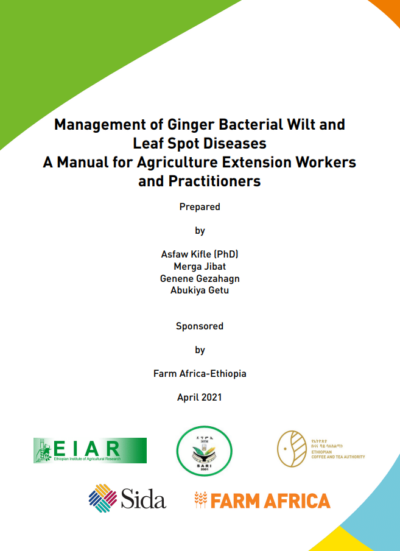
Management of Ginger Bacterial Wilt and Leaf Spot Diseases: A Manual for Agriculture Extension Workers and Practitioners
More info
Country
Ethiopia
Key focus areas
Boost productivity
Protect ecosystems
Management of Ginger Bacterial Wilt and Leaf Spot Diseases: A Manual for Agriculture Extension Workers and Practitioners
The sudden outbreak of ginger bacterial wilt disease and leaf spot disease in 2012-2013 has devastated ginger varieties all over the country irrespective of variations in cultivars and geographic locations, resulting in a sharp drop in production and supply of the crop. The diseases outbreak had an estimated incidence of 80-100%, which caused up to 90-100% crop loss. Consequently, the socio-economic security of farmers, traders and other members of the societies whose livelihood was based directly or indirectly on production and marketing of ginger have been affected.
Download (1.98mb)

Country
Ethiopia
Key focus areas
Boost productivity
Protect ecosystems

